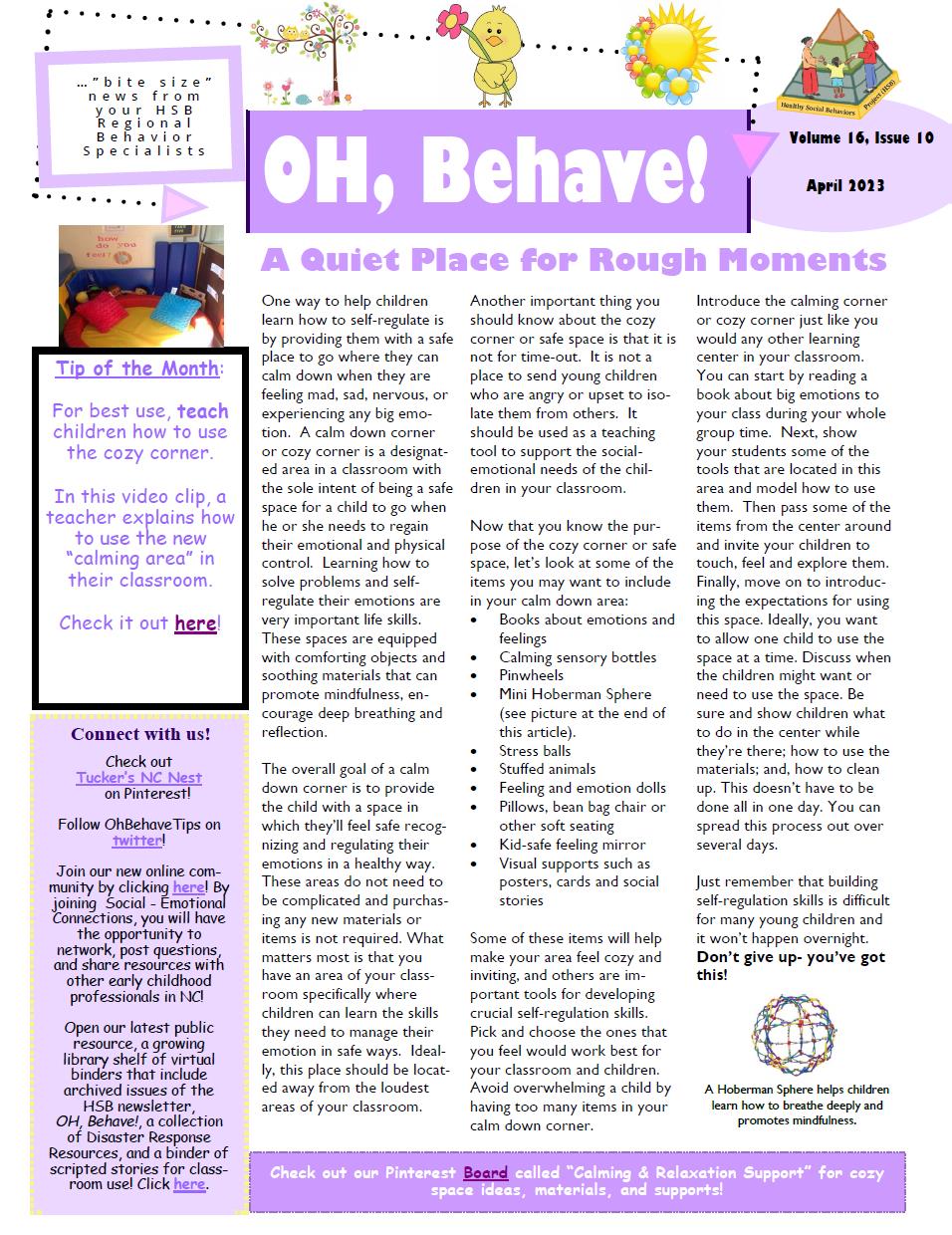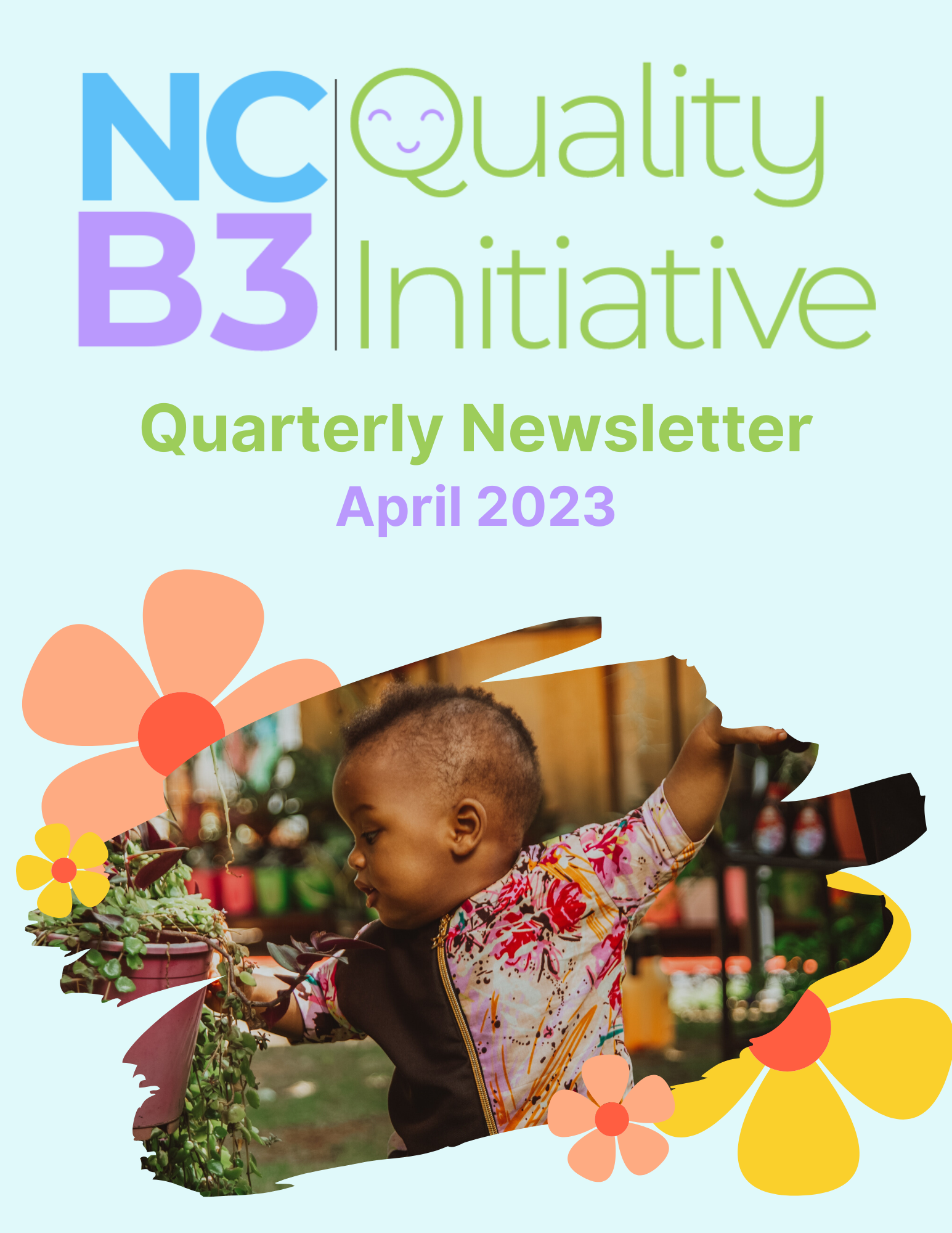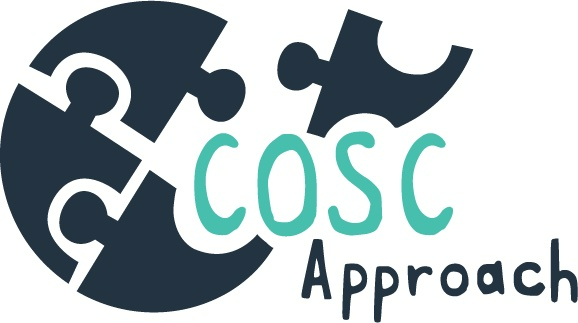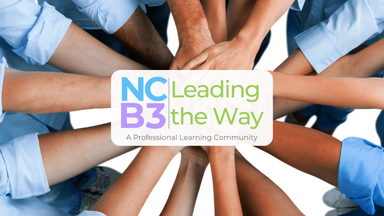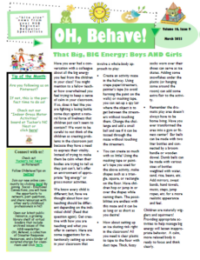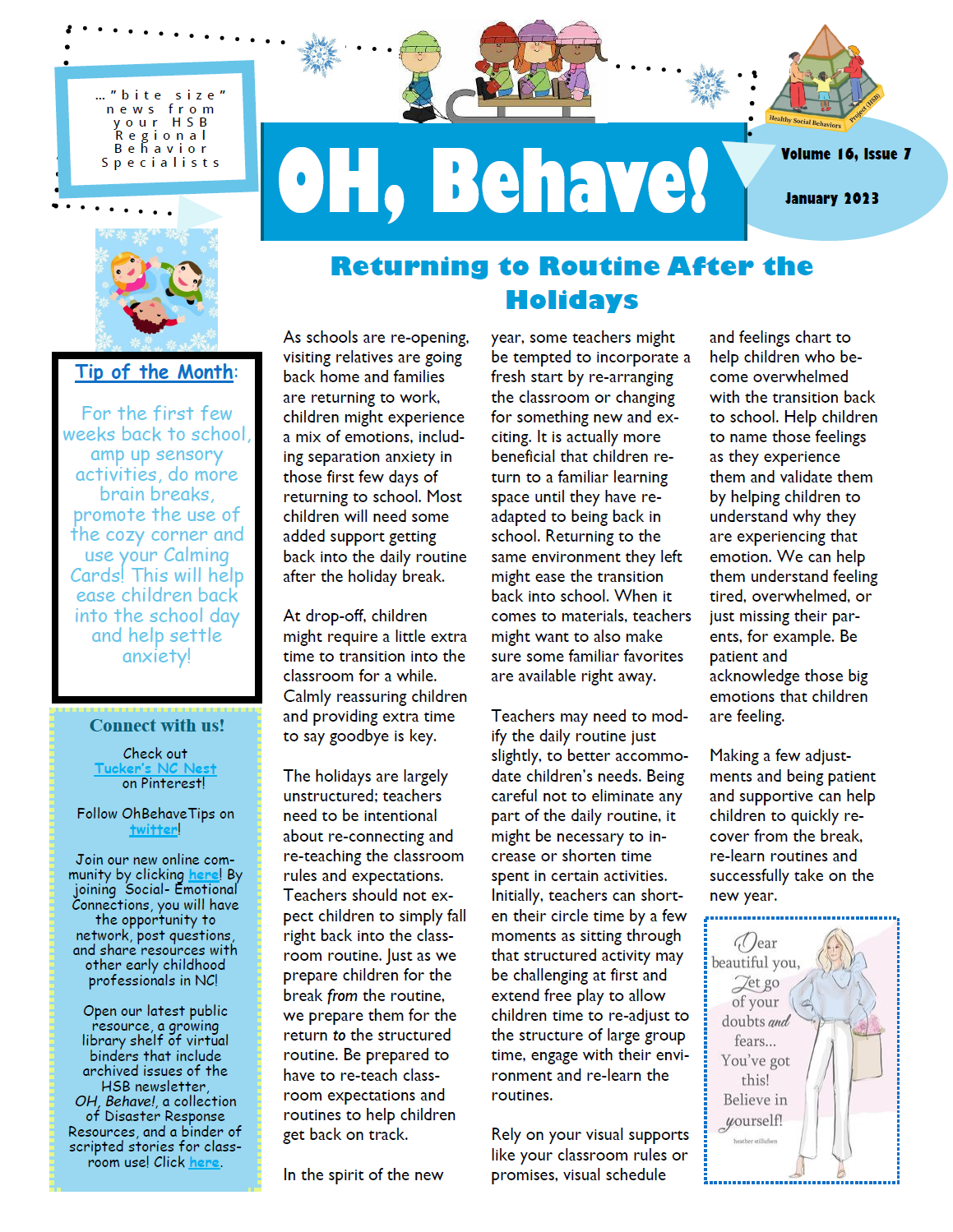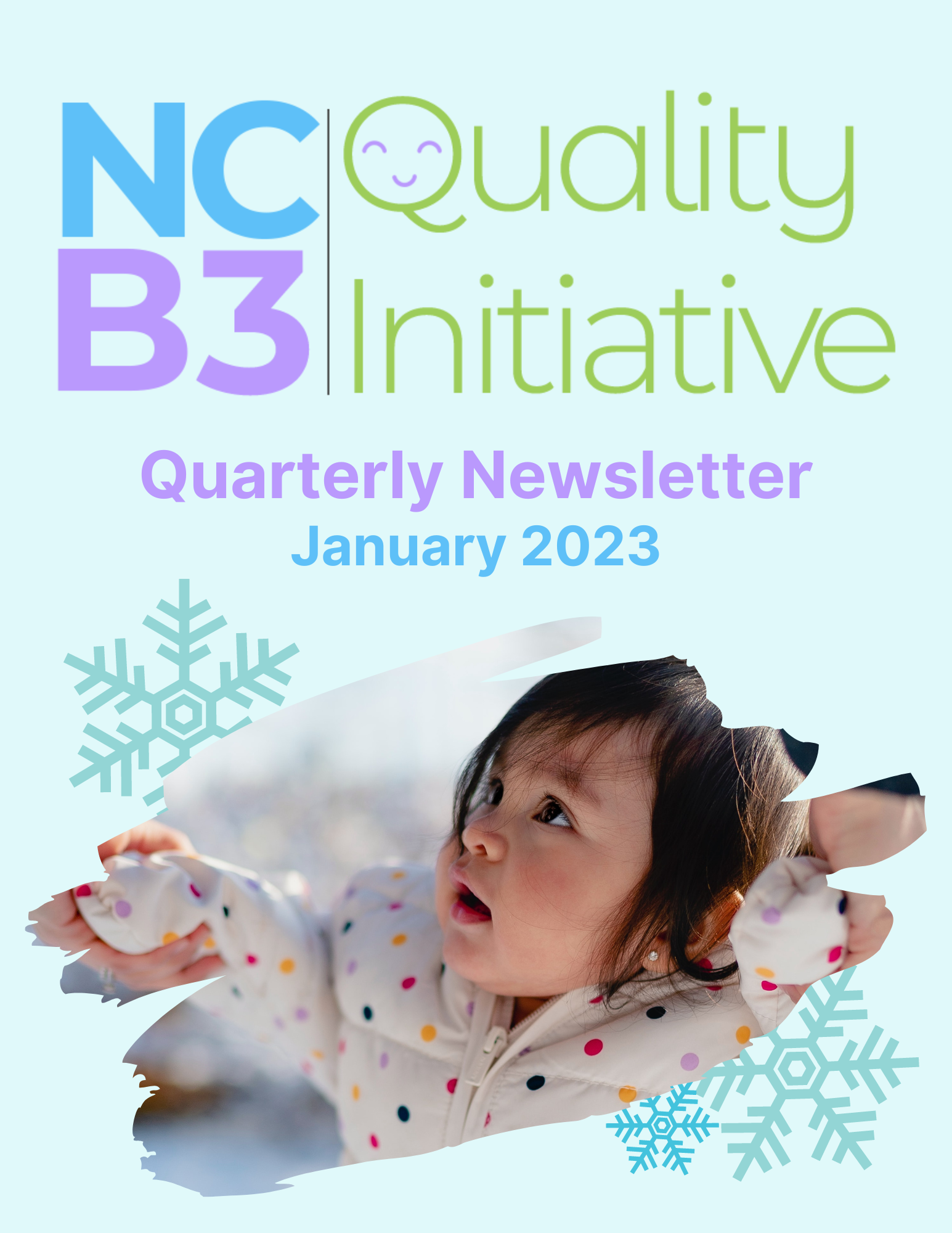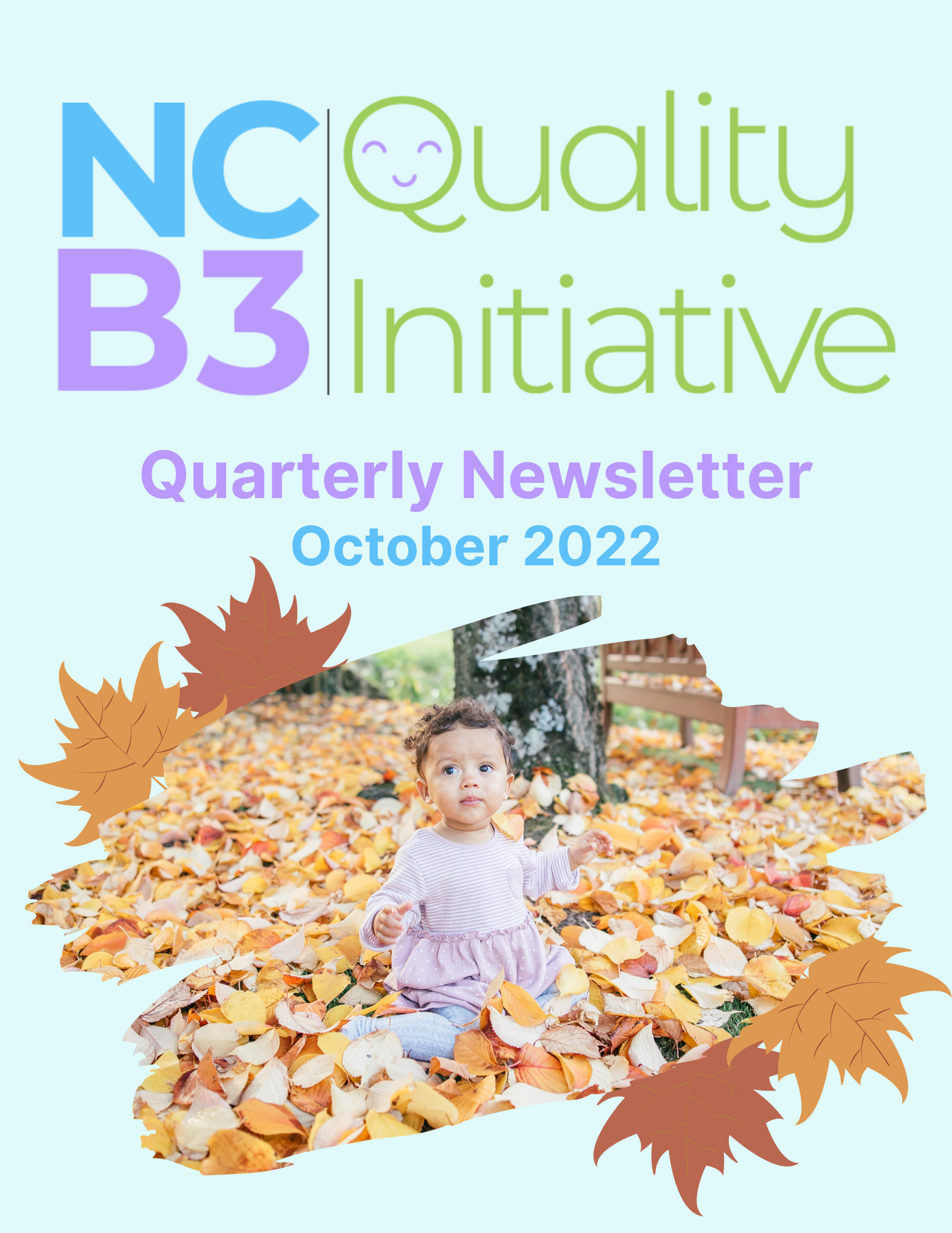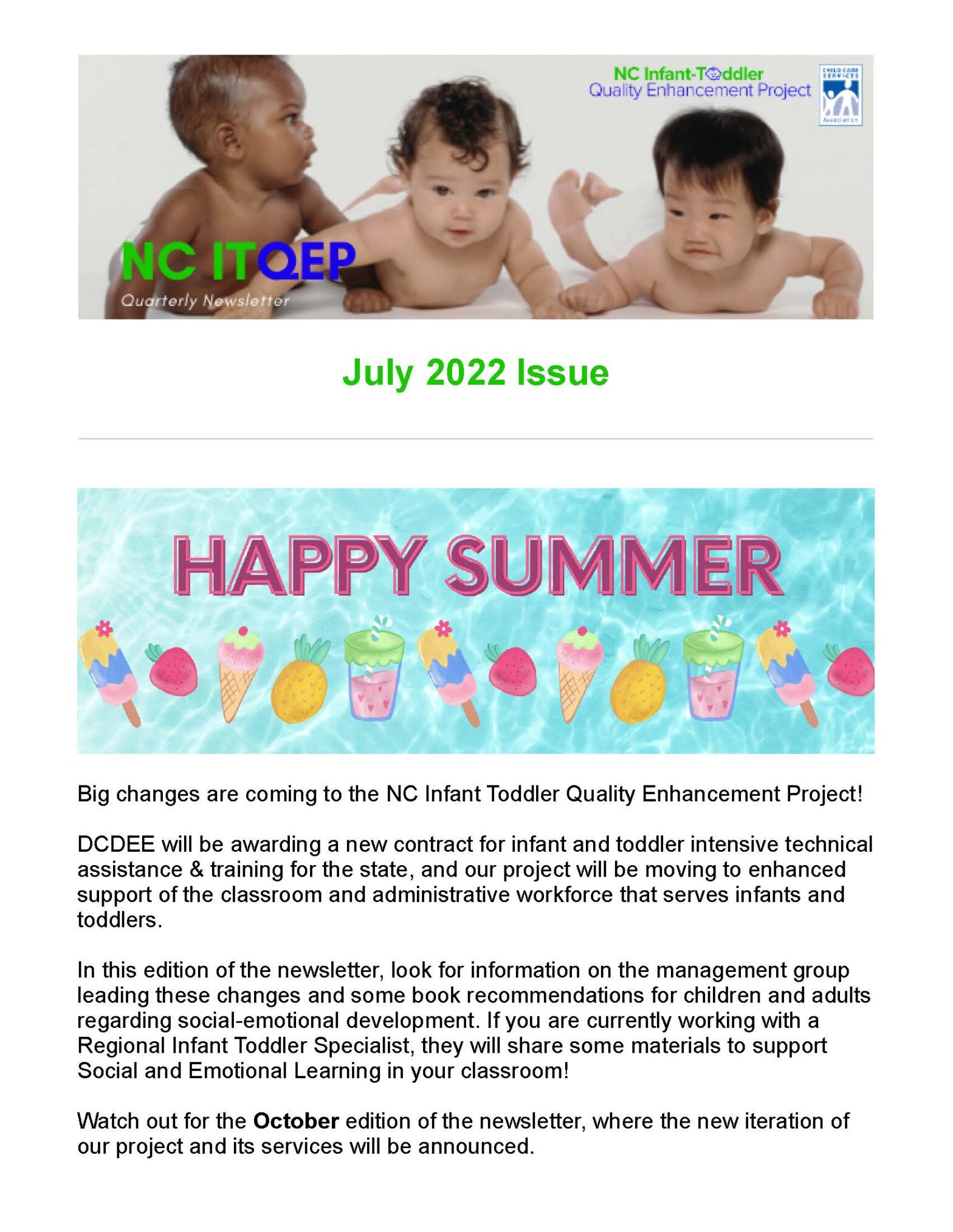The N.C. CCR&R Council has released the findings of a child care provider survey regarding the effects of the Stabilization funds. Click to read more!
Audience Category: For Child Care Providers
Ut enim ad minim veniam, quis nostrud exercitation ullamco laboris nisi ut aliquip ex ea commodo consequat.
Oh Behave! Newsletter April 2023
Click here for the latest news from the Healthy Social Behaviors Project!
B-3QI Quarterly Newsletter – April 2023
The NC Birth-to-Three Quality Initiative (B-3QI) is pleased to share our quarterly newsletter to provide relevant information to birth-to-three teachers and administrators committed to high-quality care and education.
Circle of Security Classroom Approach
The Circle of Security Classroom Approach (COSC) is an eight-chapter professional development series designed to help promote an understanding of attachment theory and offer support to classroom teachers.
Leading the Way: A Professional Learning Community
Leading the Way: A Professional Learning Community was created by the NC Birth-to-Three Quality Initiative to help new administrators better understand and achieve their goals.
Oh Behave! That Big, BIG Energy: Boys AND Girls
Oh Behave! Returning to Routine After the Holidays
B-3QI Quarterly Newsletter – January 2023
The NC Birth-to-Three Quality Initiative (B-3QI) is pleased to share our quarterly newsletter to provide relevant information to birth-to-three teachers and administrators committed to high-quality care and education.
B-3QI Quarterly Newsletter – October 2022
The NC Birth-to-Three Quality Initiative (B-3QI) is pleased to share our quarterly newsletter to provide relevant information to birth-to-three teachers and administrators committed to high-quality care and education.
ITQEP Quarterly Newsletter – July 2022
The NC Infant Toddler Quality Enhancement Project (ITQEP) is pleased to share our quarterly newsletter to provide relevant information to infant and toddler teachers and administrators committed to high-quality care and education.

